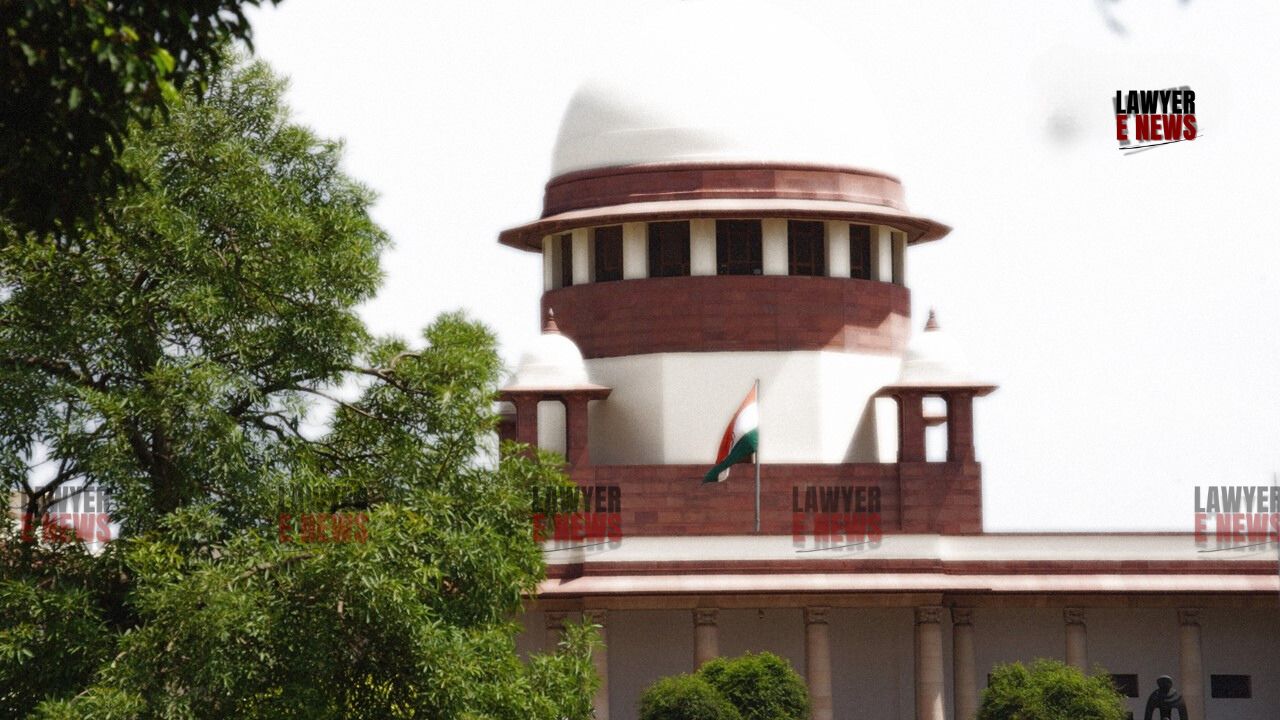-
by Admin
16 February 2026 1:47 PM



Fraud in Public Enterprises Shakes Public Confidence-Supreme Court of India dismissed the appeal of Surinder Dogra, a former Traffic Superintendent of Indian Airlines, upholding his conviction for forgery and corruption. Found guilty under Sections 420, 468, and 471 of the Ranbir Penal Code (RPC), along with Section 5(1)(d) read with Section 5(2) of the Prevention of Corruption Act, 1988, Dogra was sentenced to six months of simple imprisonment and fined ₹5,000 for each offense.
Justice Prashant Kumar Mishra, delivering the judgment, observed, "A public servant’s integrity must be beyond suspicion. When corruption enters public institutions, it erodes public trust and undermines governance."
Surinder Dogra, while serving as Traffic Superintendent at Jammu Airport, was accused of forging airline tickets to enable unauthorized travel. On November 19, 1997, Dogra allegedly prepared an infant ticket in the name of "Master Azim" and later tampered with the flight coupon, converting it into an adult ticket for "Mr. Vikram" for travel from Jammu to Delhi. The fraud resulted in a significant financial loss to Indian Airlines.
A complaint was lodged by Romesh Malhotra, Manager (Vigilance), Indian Airlines, on December 27, 1997. The complaint revealed that a travel agency, M/s. Blue Bird Tours & Travel, along with Dogra and others, manipulated airline tickets, exploiting loopholes in the system for monetary gains.
The prosecution established that Dogra paid ₹102 for an infant ticket but later altered it into an adult ticket worth ₹3,105. This deliberate manipulation not only constituted forgery but also amounted to cheating and criminal misconduct under the Prevention of Corruption Act.
The prosecution presented key witnesses, including Ashok Koul (Airport Manager), Kewal Krishan (Cashier, Indian Airlines), Romesh Malhotra (Vigilance Manager), and J.P. Jaiswar (Station Manager, Jammu Station). Handwriting expert H.M. Saxena confirmed that Dogra's handwriting matched the forged alterations on the airline ticket.
Rejecting the defense’s plea, the Supreme Court noted, "Every ticket issued had an auditor coupon, a flight coupon, and an office coupon. The flight coupon, being a carbon copy of the auditor coupon, cannot be manipulated without leaving traces. The evidence conclusively establishes that the appellant altered the ticket in his own handwriting."
The Court emphasized that fraud in public enterprises is a grave offense. Quoting from past rulings, the Bench remarked, "Public servants are custodians of trust. Any deviation from ethical conduct must be met with stringent legal consequences."
The Supreme Court cited V.C. Shukla v. State Through CBI and Sharad Birdhichand Sarda v. State of Maharashtra, reinforcing that circumstantial evidence, if conclusive, is sufficient to establish guilt beyond reasonable doubt.
Addressing Dogra’s contention that the evidence was insufficient, the Court ruled, "A defense based on technicalities cannot override the substantive evidence that points directly to the guilt of the accused."
Dismissing Dogra’s appeal, the Supreme Court concluded, "Fraudulent acts within public enterprises are an assault on transparency and accountability. Such conduct cannot be condoned, and those guilty must face the full force of law."
With this verdict, the Supreme Court reaffirmed the principle that corruption, even in seemingly minor instances, deserves strict legal scrutiny. The ruling serves as a warning to public servants that integrity is not negotiable, and any breach will be met with decisive action.
Date of decision : February 21, 2025
